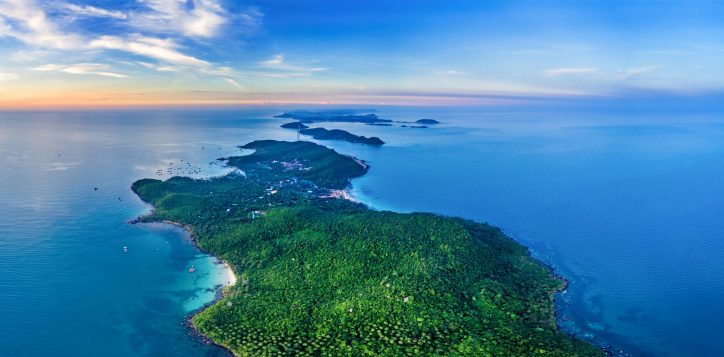Pullman Phu Quoc Beach Resort - Luxury hotel - Discover Phu Quoc
Pullman Phu Quoc Beach Resort
- English
- 日本語
- 한국어
- Tiếng Việt
- See this hotel on all.accor.com or brand website in other languages :
Discover Phu Quoc
Phu Quoc is fast becoming an unrivaled destination in Southeast Asia. For starters, anyone of any nationality can visit visa-free. Because Vietnam has classified the 22-island archipelago as a special economic zone. But more than that, the country's largest island is a tropical playground for inquisitive travelers in search of unique experiences. Discover beaches, a UNESCO-designated national park, the lively downtown, artisanal products, the world's longest cable car system, and much more.-
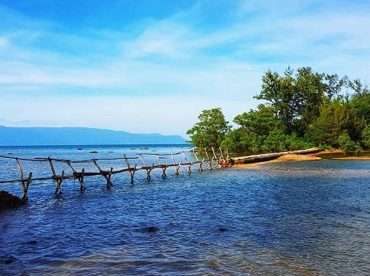
Mot Islet
Mot Islet is a hideaway in the Northeast of Phu Quoc which features both clear sea and dense forest. As it is only about 200 meters from the main island, you can walk directly in the water or use the footbridge to discover this place. Once you enter, see yourself lost in the green color of the ancient trees and ready to disengage from outside world.
-
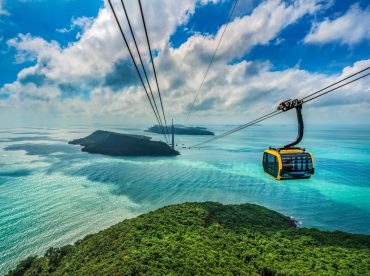
Hon Thom Cable Car
Hon Thom cable car is the world's longest cable car system. It begins at the southern end of Phu Quoc and passes over a fishing harbor and two islands. Hon Thom Island is its final destination. The departure terminal resembles Rome's Colosseum and houses a café and gift shop.
-
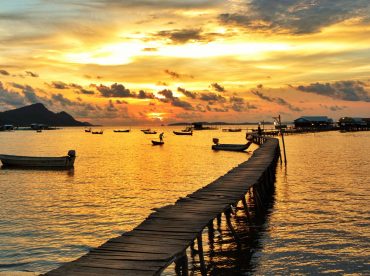
Fishing Villages
From the time Phu Quoc was settled, fishing has been an integral part of life on the island. Ham Ninh, Rach Vem and other charming fishing villages dot Phu Quoc's shores. Beachfront eateries and floating restaurants offer up locally caught seafood for hungry explorers.
-
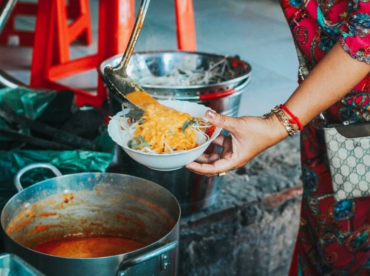
Bun Ken
The dish is not only impressive for its "loud name" but also attracts tourists by its rich, fishy, crunchy, sweet, and sour taste of various ingredients from the coastal provinces. The fish-based broth made of curry powder, coconut milk, and lemongrass, is poured over the vermicelli and fresh vegetable salad. "Ken" is a Khmer word that stands for food made of coconut milk. Bun Ken is served with shredded green papaya, bean sprouts, and fresh herbs.
-
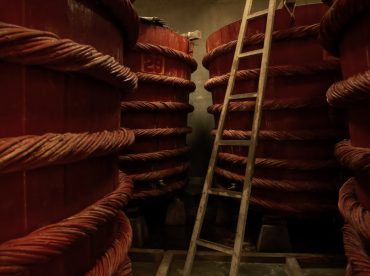
Fish Sauce Manufacturing
Phu Quoc is known for its handcrafted 'nuoc mam' (fish sauce). Nuoc Mam Phu Quoc is made by fermenting layers of fresh anchovy and local salt. The signature fish sauce is famous for its pungent ingredient that adds incredible flavor to much of Vietnamese cuisine. The island is home to many small fish-sauce manufacturers.
-

Phu Quoc Ridgeback Dogs
Three types of ridgeback dogs exist in the world, and one of them comes from Phu Quoc. Ridgeback Dog Conservation Centres work to preserve this rare breed. Visitors can walk through the forest to see Phu Quoc Ridgebacks of all ages and discover what makes them unique.
-
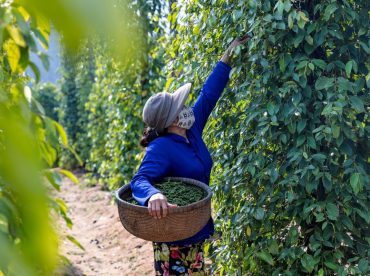
Pepper Farms
Peppercorns are one of Phu Quoc's top exports. Small farms all across the island grow, gather, and prepare this well-known spice. You can easily access the Pepper farms by touring. Farms offer tastings of various flavored salt-and-pepper blends found in almost every kitchen and restaurant dining room.
-
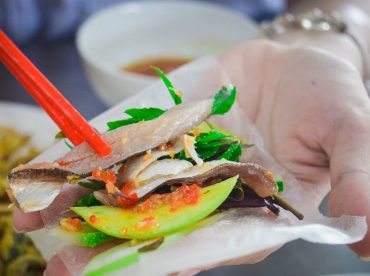
Herring Salad
Soft and fresh herring in bite-sized fillets mixed with onion and grated coconut make for a unique salad of Phu Quoc Island. In addition, the dish is not complete without the dipping sauce made from the renowned Phu Quoc fish sauce for an explosion of flavors.
-
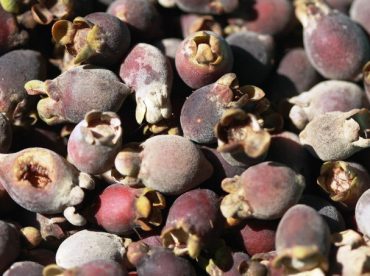
Rose Myrtle Products
Sim (rose myrtle) grow only in a few places in Phu Quoc and Vietnam's mainland. A few decades ago, locals on the island started turning the berries into syrups, candies, jams and wines. Sim plantations run tours, including the chance to sample all the delicious products from this distinctive fruit.
-
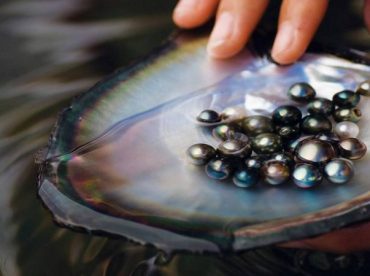
Pearl Farm
Phu Quoc is nicknamed Pearl Island, both for its natural beauty and because oysters thrive in the area's clear waters. Several pearl farms offer guided tours. Learn about local oysters, and then watch as craftspeople transform pearls and fossilized giant clam shells into works of art.
-
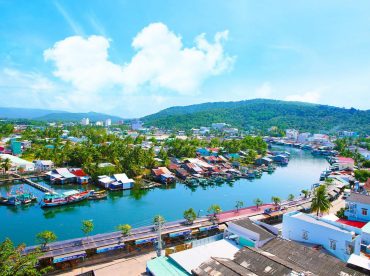
Duong Dong Town
Duong Dong town is Phu Quoc's compact capital. It is pronounced sa-zoo-ong. Shops and restaurants line busy streets, while colorful boats fill the harbor. At the nearby pagoda, locals pray for fishermen's safety. The bustling Night Market is the place to sample street foods and shop for souvenirs.
-
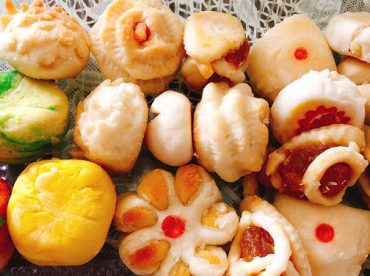
Banh Kheo
Banh Kheo (pies of skillfulness) is a popular sweet nibble for locals and travelers. This is a mini selection of Vietnamese pastries from all over the country. The curious name was given because the baker must be skilled to shape these tasty and cute pies. Banh Kheo has a variety of filling such as mung bean, shredded coconut or taro. This treat is a perfect vacation gifts for your loved ones.
-
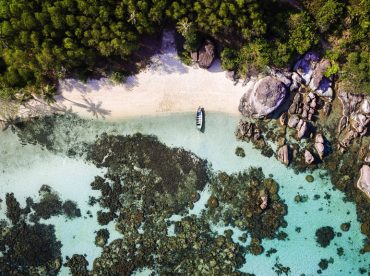
An Thoi Archipelago
Private boat tours offer a taste of the open waters. Go fishing for squid and other seafood, and then dine on your fresh catch the crew has cleaned and prepared. Island-hopping around the An Thoi Archipelago is also a favourite among snorkellers and divers on the lookout for marine life.
-
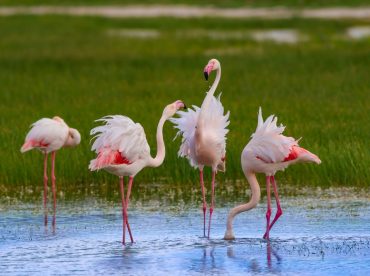
Phu Quoc National Park
Phu Quoc is fast becoming known for ecotourism, and one reason is its national park. This remote area in the island's north comprises both forested mountains and marine zones. In recognition of the fragile habitat for rare flora and fauna, UNESCO listed the park as a biosphere reserve in 2010.
-
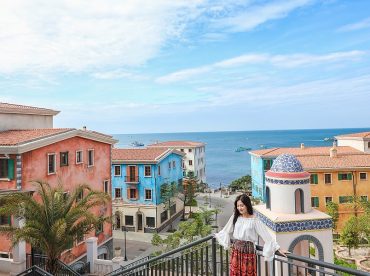
Sunset Town
Sunset Town is located at the south end of Pearl Island. It has another name which is “Mediterranean Town” of Phu Quoc. The place is one of the sought-after check-in spots. The complex is an area that recreates famous landmarks worldwide, such as Arc de Triomphe, Pompeii Ruins, the Colosseum, etc. All make it difficult for visitors to distinguish the difference from the original.
-

Aquatopia Water Park
Aquatopia Water Park – Southeast Asia’s largest water park with more than 20 modern games & 6 themed check-in zones. This is an ideal stop for enthusiastic aquaholics. Aquatopia Water Park opened in 2018 and located on Hon Thom Island. This water park is also known for its world record - the longest sea-crossing ropes of cable car system. This fun-filled park is a must-go destination with unique sea cable car access.
-
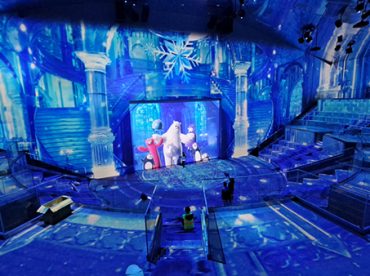
ICE JUNGLE THEME PARK
Ice Jungle is Vietnam's most modern light art amusement park, featuring hologram screens using 3D mapping technology, interactive sensors, illumination lighting and advanced immersive media technologies.
-
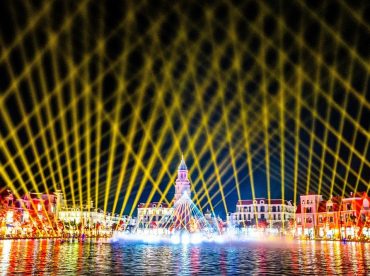
Grand World
The 'heart' of the Phu Quoc United Center is Grand World. Sleepless Festival City is another name for it. Outstanding architectural designs and active business districts may be found all across the city. Moreover, there are several thrilling festivals and events to draw tourists. Grandworld recreates the thriving entertainment districts of Venice, Shanghai, Night Market, K Street, and Vietnam.
-

Tien Son Peak
Tien Son Peak is a must-visit mountain peak looking toward Ham Ninh fishing village. The adventure to the top of Ham Ninh Mountain will take you through the jungles of the southeastern area of Phu Quoc National Park. This is where you will have to marvel at the majesty of nature.
-

Vinpearl Safari
Located in the northwest of Phu Quoc Island, the Vinpearl Safari Phu Quoc Park is the first semi-wild zoo in Vietnam. Currently, it has about 3,000 animals in 150 species. They are from rare wildlife areas in Vietnam and from many other biogeographic regions areas around the world. Some of them are the Bengal tiger, the Arabian antelope, the twisted horned antelope, the black and white lemur, etc.
-
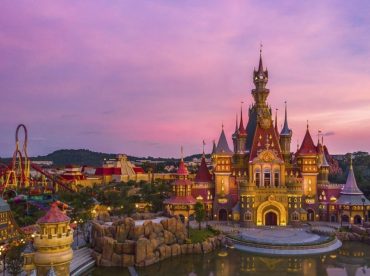
VinWonders
With an area of nearly 50ha, this is the largest theme park in Vietnam. Cultures around the world and many fairy tales inspire VinWonders' theme and architecture. VinWonders Phu Quoc offers 6 subdivisions and 12 themes. With interesting games and impressive exploration activities, the park attracts all ages of visitors.
-

Coconut Tree Prison
Coconut Tree Prison used to be the largest place to detain political prisoners in the South of Vietnam. It is also known as Phu Quoc prison. The prison is the living evidence of war crimes as well as the extraordinary life force and the unyielding will of the Vietnamese. Methods of torture are reproduced through the models, which makes viewers tremble with shiver and sympathy. Coconut Tree Prison is located in An Thoi town, southern Phu Quoc.
-
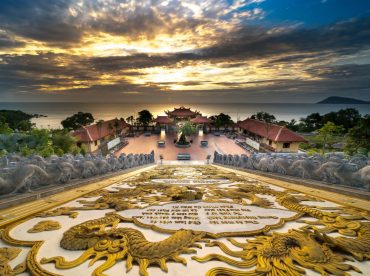
HO QUOC PAGODA
The largest temple on Phu Quoc island is Ho Quoc Pagoda. Its other name is Truc Lam Ho Quoc Monastery. The pagoda has a superior position on the back of the mountain, facing the sea. The pagoda's construction is from the Ly and Tran dynasty's architecture, including Dai Hung Bao Dien, To house, a bell tower, and an empty tower.
